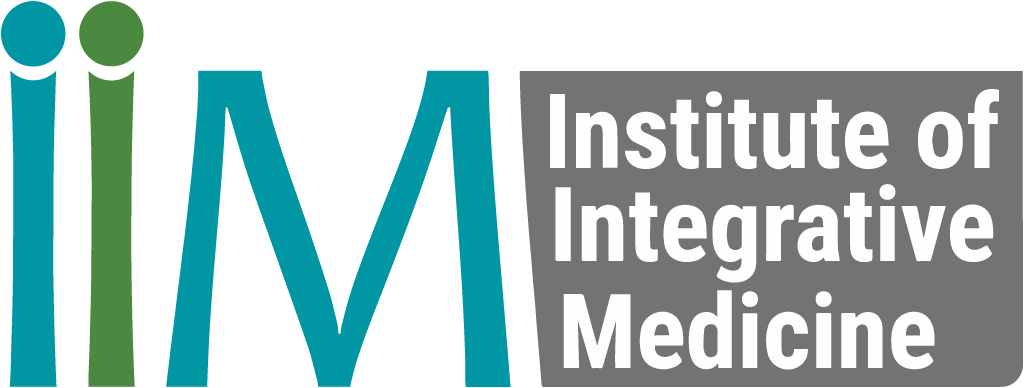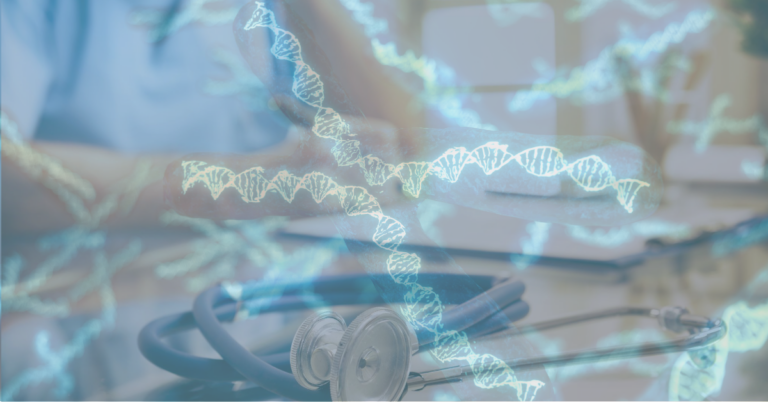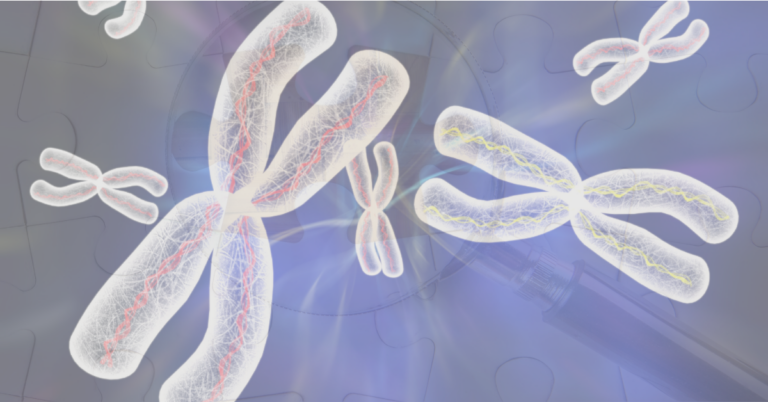Epigenetics and the stress response
The world is far from completely understanding exactly what dictates gene expression, and all factors that contribute to gene expression. Environment and behaviour are found to be linked to gene expression through epigenetic changes. These factors should be taken into account when analysing a patient’s state of health.
Recent studies have looked further into the regulation of gene expression in the central nervous system (CNS) during stress. Epigenetic changes have an influence on the expression of genes. Mechanisms that influence epigenetic changes include DNA methylation, histone modifications and microRNA activity. These mechanisms can influence the way we adapt to stress and stressors. The Limbic-hypothalamic-pituitary-adrenal axis (LHPA) is the circuit of the body responsible for the regulation, ignition and restriction of a stress response. Genetic testing and clinical studies have uncovered a variety of mechanisms that give us a close look into exactly how our genes affect us.
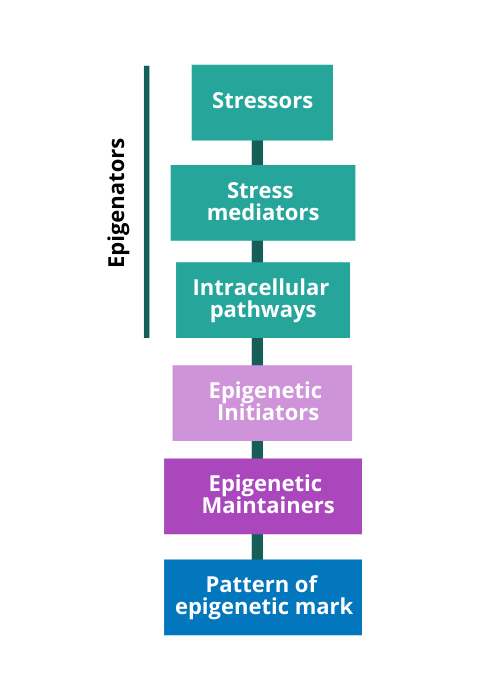
Any potential threat that endangers our integrity or function, immediately triggers a stress response. This is a naturally occurring reaction, meant to aid us in escaping dangerous situations. Think about a small mouse in the wild. When threatened, mechanisms in the body activate to aid in it’s escape. This is also known as the fight or flight response. The LHPA system is essential in coordinating both rapid and long-term behavioural, psychological and molecular responses to stress. Stress has been shown to alter the neurotransmission and synaptic plasticity in the brain. These affected areas of the brain include the prefrontal cortex, hippocampus and amygdala. Stressors that are long lasting and persistent can lead to a change in stress response, as well as the structure and function of the brain.
DNA methylation and gene expression
It is suggested that stress causes DNA changes in the brain and can lead to an array of neurological issues. Histone and gene methylation help cells to determine gene expression, by activating or deactivating a gene. Epigenetic changes are related to synaptic plasticity, memory and cognitive processes. It is also related to determining stress-related phenotypes and adaptations to stress.
Dietary Stress and the Epigenome
Dietary stress on the body can also have a huge effect on the expression of genes. The Dutch Famine of 1944 is an extreme example of this. Whilst the Germans created supply blockades into Holland, food became extremely scarce. The average calorie intake prior to the famine was around 2000 calories per day. During the famine, calorie consumption decreased to around 600 calories a day. The study was conducted by looking at pregnancies during this time. Children who were born during the famine had a much lower than average birth weight. This would be expected. What surprised scientists was that years after the famine ended, these children gave birth to underweight children as well. They were also far more predisposed to the development of Schizophrenia.
This study is particularly interesting to note, as it illustrates the clear genetic connection we have to our parents and forefathers. Something like extended periods of famine can affect generations to come. Thus, it is important that we understand the environmental conditions we find ourselves in, and how it affects the children we eventually bring into the world.
Summary
The world is far from completely understanding exactly what dictates gene expression, and all factors that contribute to gene expression. From what we do know, studies suggest the link between environment, behaviour and gene expression to be closely related. It is important to take these factors into account when looking at a patient and the status of their health. These factors can play a significant role, as well as come to surface much later on in life. Epigenetics is an emerging field of science and has the potential to change the understanding and treatment of disease.
How do I Become a Functional Medicine Practitioner to learn more about Epigenetics and stress?
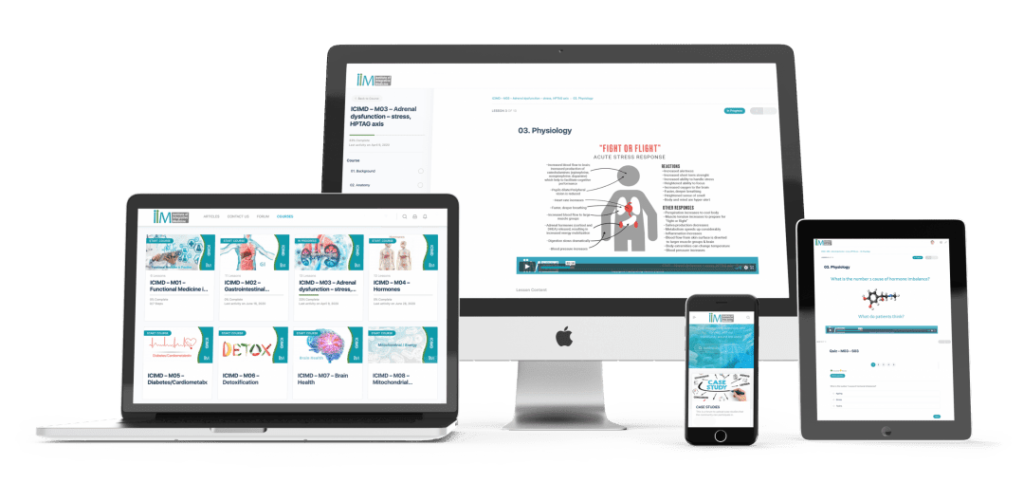
The Institute of Integrative Medicine is a global leader in the field of Integrative Medicine Education. Integrative medicine aims to be at the forefront of modern technology and new discoveries. Epigenetics is relatively new field of science with great potential. We offer certified online courses helping you to take charge of your practice and improve the quality of life for your patients. Find out more about the courses we offer today!
More posts in this category:
-
Can Diet Influence Ageing? – Quality Foods & Epigenetics
Diet holds the key to unlocking healthier ageing. Dietary choices exert a profound influence on cellular ageing through epigenetics, the study of how environmental factors impact gene expression without altering DNA sequence. By understanding these intricate connections, you can empower patients to make informed food choices that positively impact their cellular health and overall well-being. A diet rich in essential nutrients and low in added sugars, coupled with personalised advice, is a cornerstone of preventive healthcare.
-
Doctoring Beyond Genes: An Integrative Approach
Beyond just addressing symptoms, consider the potential of epigenetics. Unlike permanent mutations, modifiable epigenetic marks act as a layer of gene expression control, influenced by a patient’s environment and lifestyle. Daily habits, diet, stress levels, and exercise can all contribute to these changes. Optimising these factors presents a new avenue to potentially influence gene expression and promote a cellular milieu conducive to improved patient outcomes.
-
Epigenetics and Its Impact on Cancer Risk
For years, the interplay between genes and environment has been a medical mystery. While DNA holds the blueprint of life, recent discoveries highlight the role of epigenetics in influencing how this blueprint is used, impacting disease risk and progression. Excitingly, research suggests that our lifestyle choices can act as powerful epigenetic modulators, potentially influencing factors like cancer risk and treatment response. This emerging field of integrative medicine empowers both healthcare professionals and patients to explore the deeper connection between lifestyle and health.
